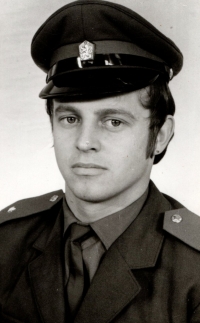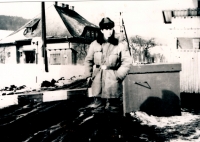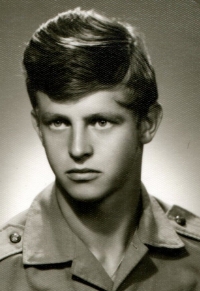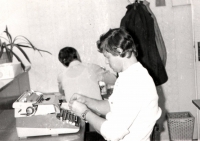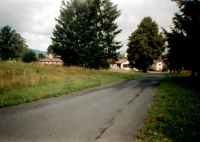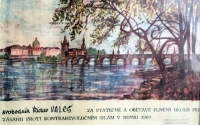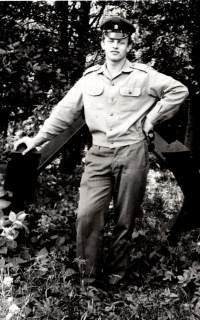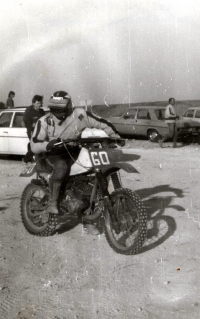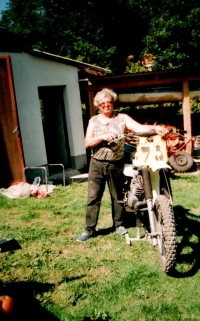If we were civilians, we’d be standing on the other side

Download image
Václav Valeš was born on 28 April 1949 in a small village of Chotiná in the Pilsen region. He grew up in a family with five children, his father was a carpenter and his mother worked in a local cooperative farm. Václav trained as a machinist, worked briefly at the Škoda factory in Plzeň and in the summer of 1968 was called up for compulsory military service. After recruitment he was assigned to the Border Guard unit in Nýrsko. There he underwent basic training and for the next two years he was to guard the western border of socialist Czechoslovakia. The date of his military oath had been set for 21 August 1968, but on the same day Czechoslovakia was occupied by Warsaw Pact troops and the situation changed completely. Václav Valeš took part in modest protests of the then nineteen-year-old recruits, but he also heard the battalion commander’s undisguised disapproval of the occupation. He also experienced threats from the Soviet occupiers directed at the Czech soldiers. In January 1969, without further explanation, Václav Valeš was transferred to the Ruzyně barracks in Prague, where he spent several days in inactivity together with other Border Guard soldiers. Only later did he learn that they were to be deployed to suppress possible riots during Jan Palach’s funeral. The same situation repeated itself in August of the same year, and they were again taken to Prague, but this time they were ordered to intervene. Mass protests against the occupation broke out in Prague and Václav Valeš was one of the soldiers who were intervening in the centre of the capital. To this day, he has not fully come to terms with the situation he found himself in, and he has also found it difficult to cope with the painful memories of those days. In the second year of the military service, he was transferred to the Border Guard Company in Folmava, and to be able to shorten the service in the army, he signed up for service with the police (then called the Public Security). He spent eight years as a loe rank police officer in the streets of Pilsen and then, until 2000, worked in the passport and visa department in Pilsen. After 1989, he successfully passed the background checks, but 1997 brought him problems. At that time, as head of the passport and visa department in Plzeň, he was accused of abusing the power of a public official, specifically of issuing a false passport. He denied the accusation as false, and his guilt was not proven even during the trial. However, the increasingly protracted time until the trial started, the media coverage of the case and the impossibility to defend himself effectively brought him much frustration and he subsequently decided to leave the police force. He is now (2021) retired and living with his family in Pilsen.
